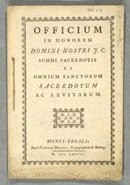Writing Cultures: Gender, Class, and Authorship in Early Modern England
Saturday, October 25, 2008
Texas A&M University
The Early Modern Studies Working Group at Texas A&M University is now accepting paper proposals for its fall symposium, “Writing Cultures: Gender, Class, and Authorship in Early Modern England,” which will be held Saturday, October 25th, 2008, in College Station, TX. Though the symposium’s title hints at a more focused approach to the concepts of “gender, class, and authorship,” papers may address any aspect of the symposium’s theme of “Writing Cultures.” Papers may explore writing culture(s) based in any facet of early modern English literature, theater, history, politics, performance, visual art, sexuality, philosophy, religion, or economics. Some of the broad goals for this event are to: further investigate the intersection of gender, class, and writing practices; reflect on the history of these topics within Early Modern humanities scholarship; and consider their impact on current critical trends. Thus possible topics could include:
Confessional narratives
Journals and periodicals
Manuscript culture
Accounting guidebooks
Dramatic paratext (prologues, epilogues, afterpieces)
Epistolary culture
Pamphlets
Travel writing & practices
Advertisements
Bookselling, printers, and the literary marketplace
Cookbooks
Domestic advice manuals
Writing cultures at Court
Contracts and contract theory
Keynote speakers for the event are Wendy Wall, Chair and Professor in the Department of English at Northwestern University, and Devoney Looser, Associate Professor of English at the University of Missouri and Co-Editor of the Journal for Early Modern Cultural Studies.
Proposals of 1-2 pages should be sent via e-mail attachment, along with name, contact information, and vitae, to Courtney Beggs at cbbeggs_at_tamu.edu by September 1st.



